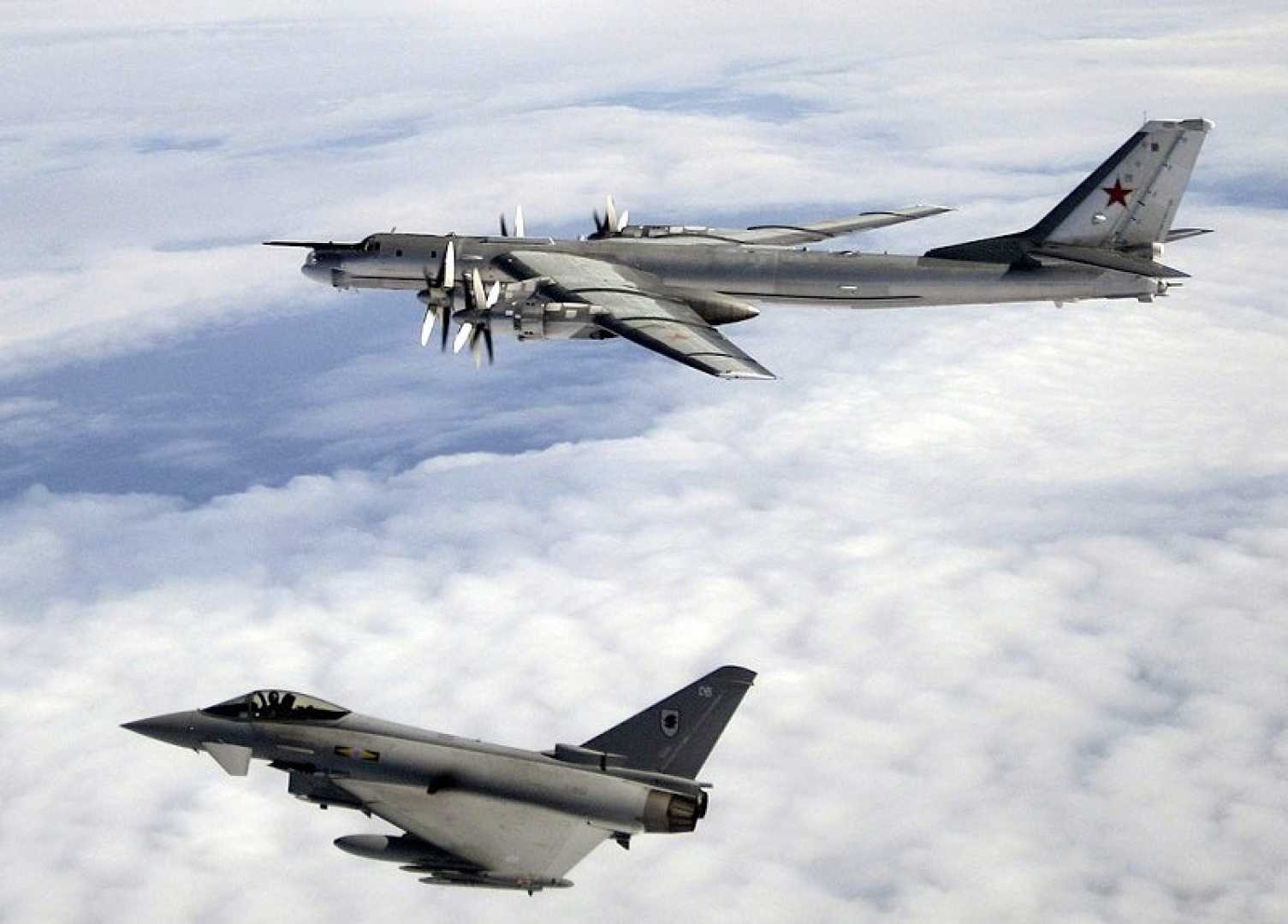News
UK Typhoons Intercept Russian Aircraft Near NATO Airspace

WARSAW, Poland — British fighter jets intercepted two Russian aircraft flying near NATO airspace over the Baltic Sea earlier this week, according to the UK’s Ministry of Defence (MoD). The incidents took place on April 15 and April 17, as part of the UK’s commitment to NATO’s enhanced air policing efforts.
On April 15, two RAF Typhoons were scrambled from Malbork Air Base, Poland, to intercept a Russian Ilyushin Il-20M “Coot-A” intelligence aircraft. Two days later, another pair of Typhoons responded to an unidentified aircraft departing from Russian-controlled Kaliningrad airspace.
These interceptions mark the first engagement by the RAF under Operation Chessman, a mission initiated to bolster the defense of NATO’s eastern flank. This operation is particularly significant as it includes the UK and Sweden working collaboratively to enhance regional security since Sweden’s accession to NATO in 2024.
“With Russian aggression growing and security threats on the rise, we are stepping up to reassure our allies, deter adversaries, and protect our national security through our Plan for Change,” said Luke Pollard, Minister for the Armed Forces. He emphasized that the UK remains “unshakeable” in its commitments to NATO.
Pollard also highlighted the operational significance of this mission, stating, “This mission shows our ability to operate side by side with NATO’s newest member, Sweden, and to defend the Alliance’s airspace whenever needed, keeping us safe at home and strong abroad.”
The deployment of nearly 200 personnel and six Typhoon jets to Malbork is the latest contribution to NATO’s air policing initiatives, which began after Russia’s annexation of Crimea in 2014. Historical data indicates that incidents involving RAF intercepts of Russian aircraft are not uncommon, even dating back to the Cold War.
In recent months, the RAF has participated in various air policing missions, including operations in Romania and Iceland. The commitment to NATO’s enhanced air policing is partially a strategic response to the increasing frequency of Russian military activity in the Baltic Sea region.
Lieutenant General Jürgen-Joachim von Sandrart, former head of NATO’s Multinational Corps Northeast, noted that the Baltic Sea is considered a strategic priority for Russia, prompting NATO to enhance its maritime defenses, including a bolstered naval presence to protect vital infrastructure.
As tensions continue in Eastern Europe, the RAF’s quick reaction alert forces play a crucial role in maintaining security in the region. With the deployment of personnel and aircraft, NATO asserts its readiness to respond to potential threats proactively.












